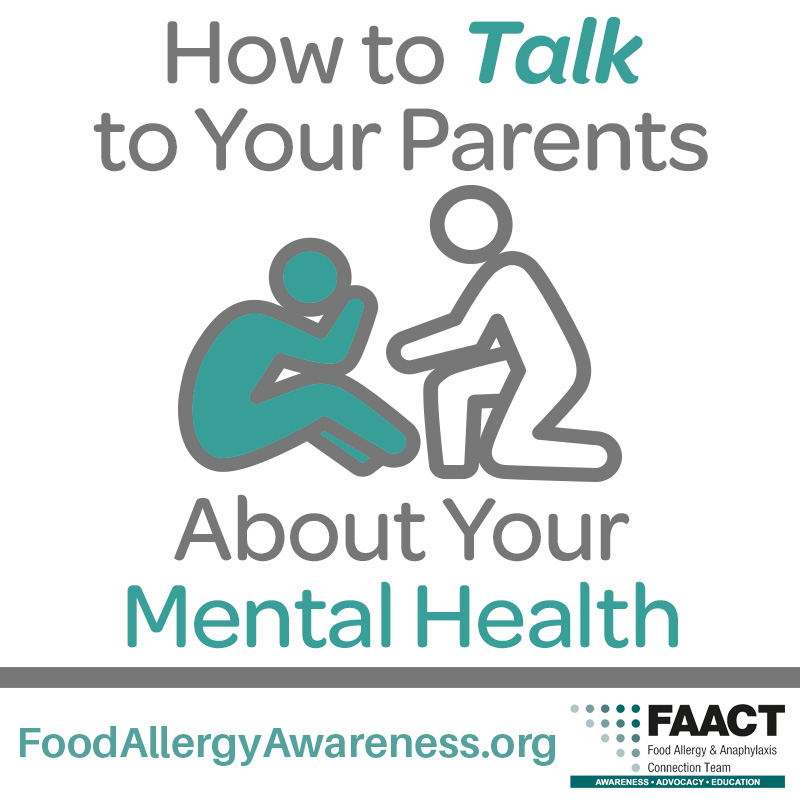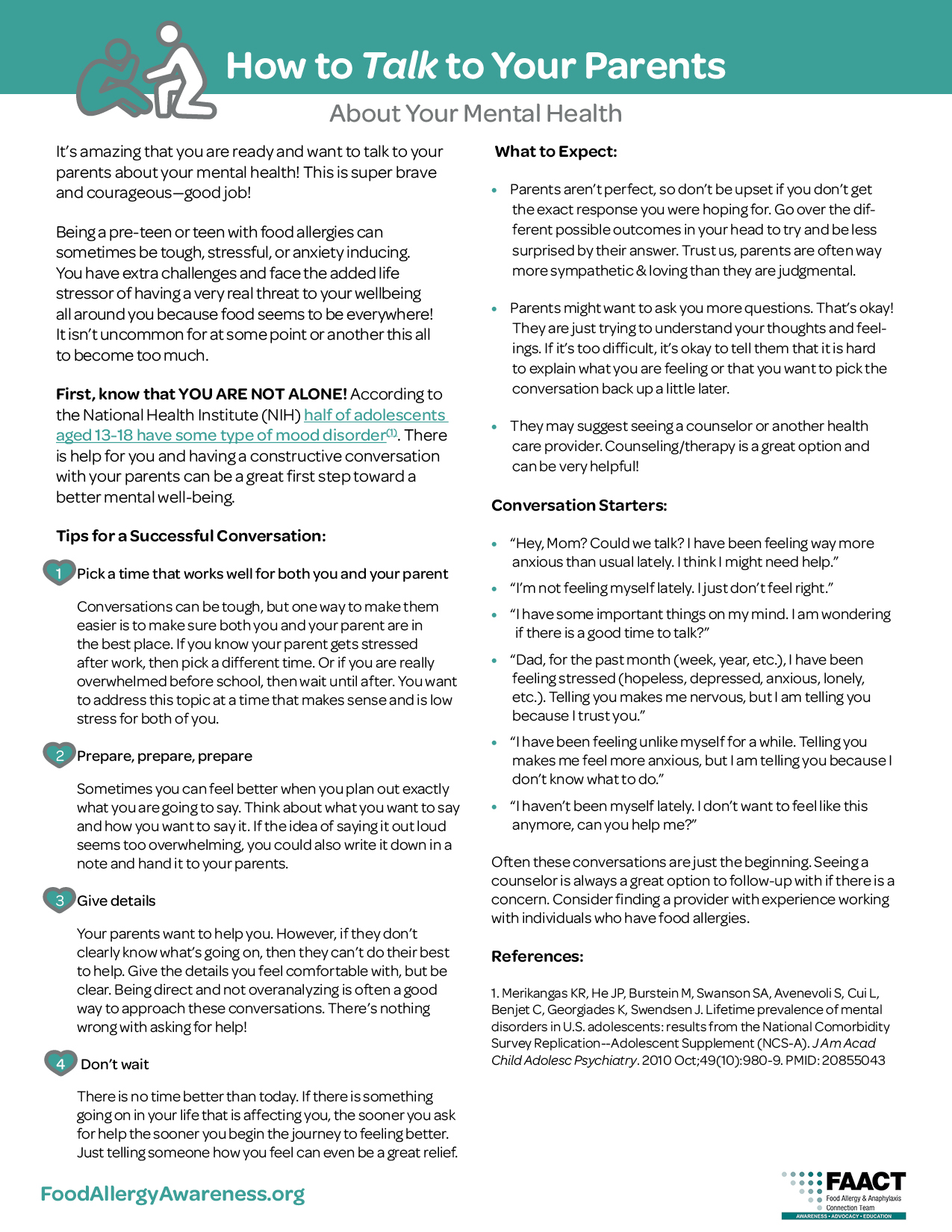Behavioral Health
Anxiety and Depression
Back to Category View
How to Talk to Your Parents About Your Mental Health
It’s amazing that you are ready and want to talk to your parents about your mental health! This is super brave and courageous—good job!
Being a pre-teen or teen with food allergies can sometimes be tough, stressful, or anxiety inducing. You have extra challenges and face the added life stressor of having a very real threat to your wellbeing all around you because food seems to be everywhere! It isn’t uncommon for at some point or another this all to become too much.
First, know that YOU ARE NOT ALONE! According to the National Health Institute (NIH) half of adolescents aged 13-18 have some type of mood disorder(1). There is help for you and having a constructive conversation with your parents can be a great first step toward a better mental well-being.
Tips for a Successful Conversation:
- Pick a time that works well for both you and your parent.
Conversations can be tough, but one way to make them easier is to make sure both you and your parent are in the best place. If you know your parent gets stressed after work, then pick a different time. Or if you are really overwhelmed before school, then wait until after. You want to address this topic at a time that makes sense and is low stress for both of you. - Prepare, prepare, prepare!
Sometimes you can feel better when you plan out exactly what you are going to say. Think about what you want to say and how you want to say it. If the idea of saying it out loud seems too overwhelming, you could also write it down in a note and hand it to your parents. - Give details.
Your parents want to help you. However, if they don’t clearly know what’s going on, then they can’t do their best to help. Give the details you feel comfortable with, but be clear. Being direct and not overanalyzing is often a good way to approach these conversations. There’s nothing wrong with asking for help! - Don’t wait!
There is no time better than today. If there is something going on in your life that is affecting you, the sooner you ask for help the sooner you begin the journey to feeling better. Just telling someone how you feel can even be a great relief.
What to Expect:
- Parents aren’t perfect, so don’t be upset if you don’t get the exact response you were hoping for. Go over the different possible outcomes in your head to try and be less surprised by their answer. Trust us, parents are often way more sympathetic & loving than they are judgmental.
- Parents might want to ask you more questions. That’s okay! They are just trying to understand your thoughts and feelings. If it’s too difficult, it’s okay to tell them that it is hard to explain what you are feeling or that you want to pick the conversation back up a little later.
- They may suggest seeing a counselor or another health care provider. Counseling/therapy is a great option and can be very helpful!
Conversation Starters:
- “Hey, Mom? Could we talk? I have been feeling way more anxious than usual lately. I think I might need help.”
- “I’m not feeling myself lately. I just don’t feel right.”
- “I have some important things on my mind. I am wondering if there is a good time to talk?
- “Dad, for the past month (week, year, etc.), I have been feeling stressed (hopeless, depressed, anxious, lonely, etc.). Telling you makes me nervous, but I am telling you because I trust you.”
- “I have been feeling unlike myself for a while. Telling you makes me feel more anxious, but I am telling you because I don’t know what to do.”
- “I haven’t been myself lately. I don’t want to feel like this anymore, can you help me?”
Often these conversations are just the beginning. Seeing a counselor is always a great option to follow-up with if there is a concern. Consider finding a provider with experience working with individuals who have food allergies.
References:
- Merikangas KR, He JP, Burstein M, Swanson SA, Avenevoli S, Cui L, Benjet C, Georgiades K, Swendsen J. Lifetime prevalence of mental disorders in U.S. adolescents: results from the National Comorbidity Survey Replication--Adolescent Supplement (NCS-A). J Am Acad Child Adolesc Psychiatry. 2010 Oct;49(10):980-9. PMID: 20855043
Download FAACT's How to Talk to Your Parents About Your Mental Health handout.
